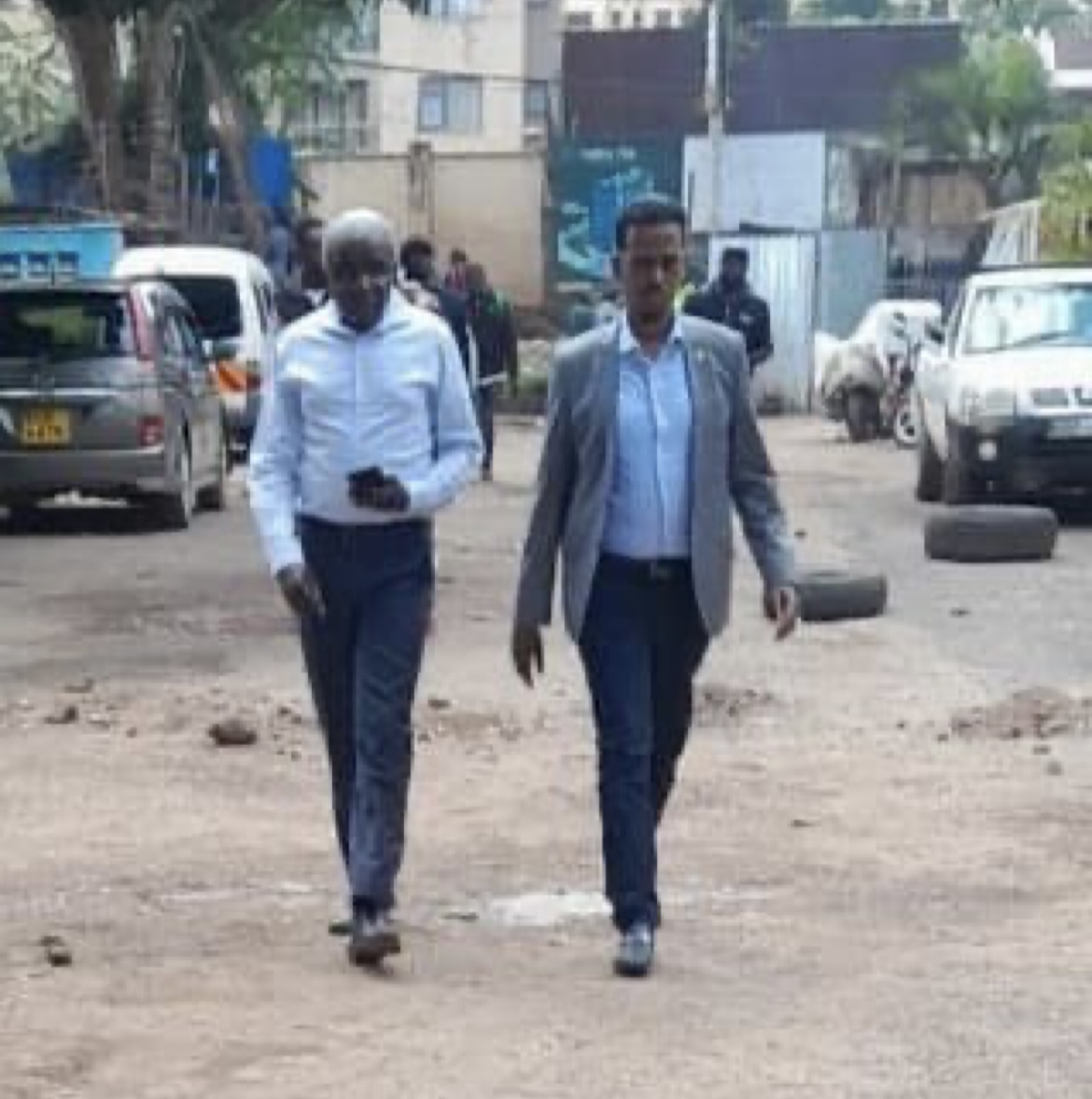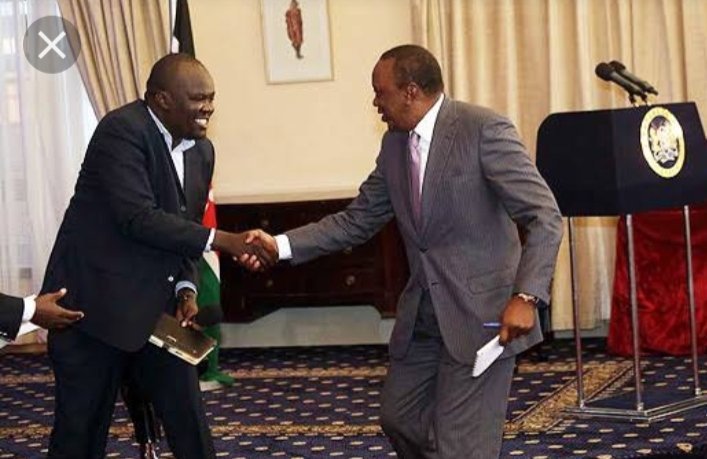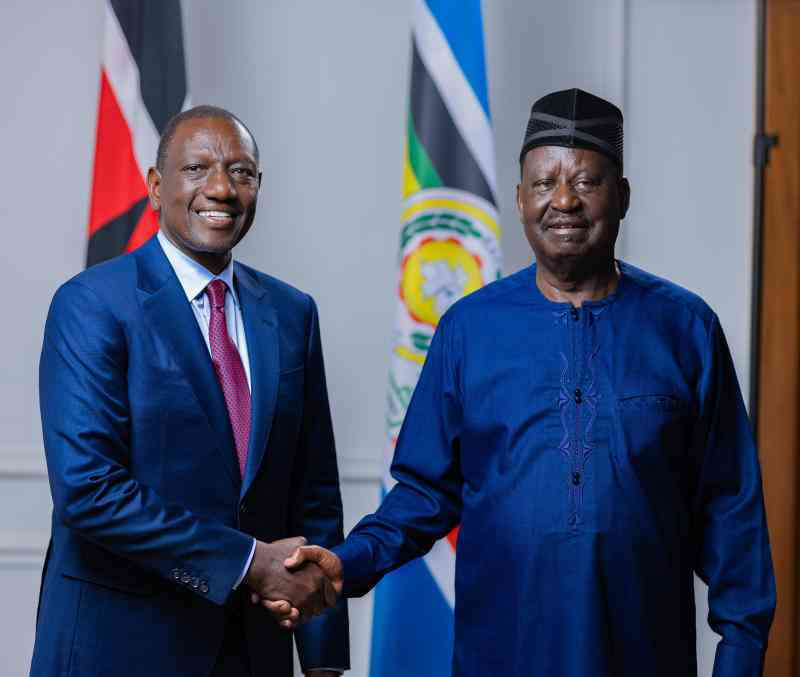In Nairobi’s affluent neighborhoods, a disturbing pattern of land and property grabbing has emerged, exposing a toxic nexus between corrupt politicians, a complicit police force, and a political class that thrives on impunity. At the heart of this scandal is Kileleshwa Ward’s Member of County Assembly (MCA), Robert Alai, whose exploits in property dispossession have cast a dark shadow over the city’s governance.
This article delves into the systemic rot that enables such malfeasance, the role of the Kenya Police in aiding these crimes, and the complicity of Kileleshwa residents who, through their voting choices or apathy, have allowed this crisis to fester. It also serves as a stark warning to Nairobians against the dangers of euphoric, tribal, or party-based voting patterns that prioritize loyalty over merit.
Robert Alai: From Blogger to Land Grabber
Robert Alai, once a prominent blogger, has transformed his public persona into a tool for extortion and property grabbing, leveraging his position as Kileleshwa MCA to orchestrate brazen acts of dispossession. On March 31, Alai allegedly descended on a house along Runda Drive (House No. 102) in the upscale Runda Estate, accompanied by hired goons and assisted by the Officer Commanding Station (OCS) at Runda Police Station, Rose Ndolo.
This incident is not isolated. Alai is also accused of attempting to grab a parcel of land owned by the TelPosta Pension Scheme (TPS) opposite Geco Restaurant, with the complicity of Muthangari Police Station’s OCS and Deputy OCS, who reportedly turned a blind eye after receiving bribes.

Kileleshwa Member of County Assembly and Orange Democratic Movement Member Robert Alai with goons in tow, evicting the rightful owner of a house in Nairobi’s upscale Runda Estate
In the TPS incident, approximately 50 goons from Kibera, allegedly hired by Alai, stormed the estate, claiming to represent TPS. Without any documentation or identification, they fenced off an open playground critical to the community, resorting to violence when residents questioned their actions. Alai pocketed KSh 3 million from a Somali “investor” to facilitate this grab, highlighting the depths of his alleged greed.
The involvement of figures like Makadara MP George Omwera Aladwa, also of the Orange Democratic Movement (ODM), points to a broader network of political operatives engaging in similar schemes.
The Role of the Kenya Police
The Kenya Police, specifically the National Police Service (NPS), have become enablers in this epidemic of land grabbing. Officers, including high-ranking OCSs, are accused of colluding with politicians like Alai, either through direct participation or deliberate inaction. In the Runda and TPS cases, police provided logistical support or conveniently “disappeared” when residents sought protection. This betrayal of public trust underscores a police force compromised by corruption, where bribes dictate justice, and the rule of law is subverted to serve the interests of the powerful.

The Somali investor who eyed a parcel of land owned by TelPosta Sacco flanked by hired goons mobilized by Kileleshwa MCA Robert Alai
Expired Leases: A Tool for Dispossession
A particularly insidious tactic in these land grabs involves targeting properties with expired leases, often without the knowledge of the rightful owners. Corrupt politicians and their allies exploit this loophole, using insider information and police muscle to seize valuable land in Nairobi’s prime areas. This practice not only disenfranchises legitimate owners but also erodes public confidence in land ownership systems, as the very institutions meant to protect property rights become instruments of theft.
Kileleshwa’s Complicity: A Failure of Electoral Judgment
The residents of Kileleshwa Ward bear significant responsibility for this crisis. By electing Robert Alai, either through direct votes or voter apathy, they have enabled a figure with a well-documented history of questionable conduct to wield power. Shockingly, Alai was even allowed to address a residents’ association meeting, despite his known exploits in property grabbing. This lapse in judgment reflects a broader failure among Nairobi’s urban voters, who often prioritize party loyalty or tribal affiliations over merit and vision.
Kileleshwa, an area synonymous with affluence and sophistication, should set the standard for discerning electoral choices. Yet, residents have repeatedly elected individuals like Alai, described as a “rural-bred” politician with little understanding of urban priorities such as preserving playgrounds and open spaces. This pattern extends beyond Kileleshwa, with Nairobians across constituencies guilty of electing leaders whose sole ambition appears to be the primitive accumulation of wealth, often at the expense of the city’s development and livability.
The Decline of ODM and Political Accountability

Makadara MP George Omwera Aladwa. Nairobi’s love affair with thugs from major political parties continues to baffle analysts
The Orange Democratic Movement (ODM), once a beacon of hope for good governance under Raila Odinga, has been tainted by the actions of its elected officials. Alai’s crimes, alongside those of figures like George Omwera Aladwa, expose a party leadership that either tolerates or fails to curb malfeasance. Odinga’s alignment with President William Ruto’s regime has diluted ODM’s commitment to accountability, allowing rogue elements within the party to thrive unchecked.
A Warning to Nairobians
The land-grabbing crisis in Nairobi is a wake-up call for its residents. Euphoric voting based on party or tribal loyalties has no place in an urban cosmopolitan hub like Nairobi, where leadership should be judged on merit, vision, and a commitment to the public good. The election of rural-born politicians with no regard for urban planning or community welfare has led to the erosion of Nairobi’s social fabric. Playgrounds, open spaces, and private properties are being stolen by those entrusted to protect them, while residents stand idly by, complicit through their electoral choices.

From a thug to an MCA: Former President Uhuru Kenyatta sanitized Robert Alai’s foray into politics by lending him the extrajudicial infrastructure to grab land and properties in Nairobi.
Kenyans must reject the allure of tribalism and party euphoria, which have consistently delivered leaders ill-equipped for the complexities of urban governance. The consequences of these choices are evident: a city plagued by corruption, a police force that abets crime, and a political class that preys on its citizens. Nairobians must demand leaders with a clear vision for sustainable urban development, not opportunists seeking to exploit the city’s wealth.
Conclusion
The nexus of corrupt politicians, a rogue police force, and a complicit political class has turned Nairobi into a battleground for land and property grabbing. Robert Alai’s actions in Kileleshwa and Runda are a symptom of this deeper malaise, enabled by a police force that prioritizes bribes over justice and a political system that rewards impunity.
Kileleshwa residents, and Nairobians at large, must take responsibility for their role in electing such leaders. The city’s future depends on a shift toward merit-based voting, free from the shackles of tribal or party loyalties. Only then can Nairobi reclaim its promise as a beacon of progress and opportunity.
VIDEO: Kileleshwa MCA Robert Alai descends with goons to Runda Estate at a property owned by an elderly couple, grabbing it with ruthless force, backed by the Kenya police.

